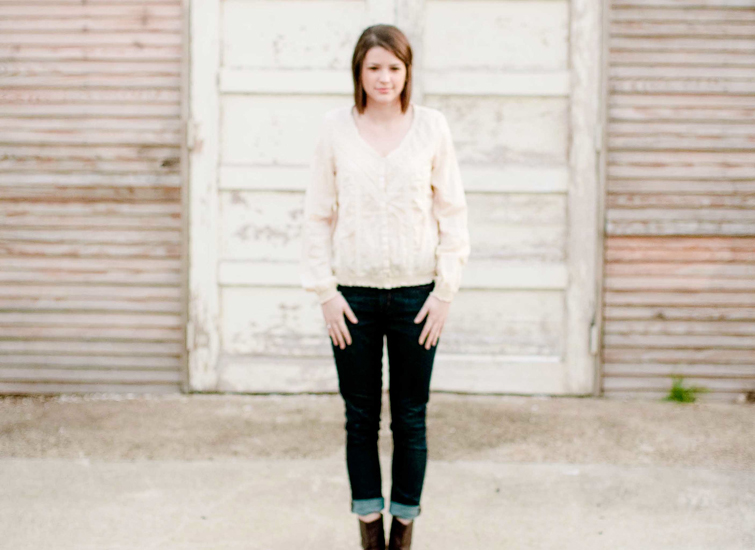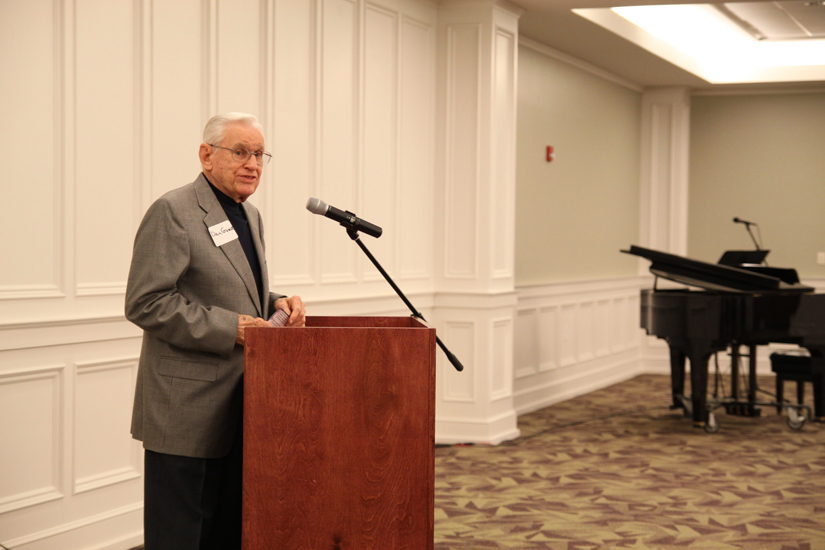Photo Courtesy of Allison Cornell
See Original Article Here
Alumna Allison Cornell released her second Christian album Feb. 28 on iTunes. The five track extended play album, “Backwards Now — EP,” includes two songs written during her time at Ouachita.
“[The song] ‘Family’ was birthed out of my experience of community at Ouachita,” she said. “‘Our Blessed Hope’ is based on Titus 2-3. …I wrote it after leaving my Women in Ministry class where we had meditated on that passage together. So much of my music is tied to my Ouachita experience, so I was definitely a little homesick the week the EP released.”
Cornell said the theme that runs deepest on the album is that of hope, especially for those in difficult and trying circumstances and that there is an assured and “blessed” hope that all of us can wait for: Christ’s return.
“I want my music to be a vessel for truth,” she said. “All of my songs — the good, bad and the ugly — come from my personal experience of walking with God. My heart’s desire is that people would find comfort as they listen, that they would be reminded that they aren’t alone and, most importantly, that it would draw them closer to God’s heart.”
When Cornell spoke of the role writing has for her, she described how her songs evolve from ideas into music. She said they start out as “really sloppy journal entries.”
She said her time spent in Nashville working on the album gave her an extended opportunity to write and work through her thoughts and ideas.
“Writing is a way for me to process what the Lord is doing in me or saying to me,” she said. “I love the actual [writing] process and putting the song together, but a majority of the process for me is internal. My favorite part of the process is starting off with a really sloppy set of ideas and then watching all those little pieces come together to make a song.”
Cornell said the Ouachita community gave her “a chance to cultivate her gifts in a safe and encouraging environment.” She said she is grateful for the opportunities she had to play music here and has fond memories of performing on campus.
“One of my favorite memories was playing a show with Don Schaffer of Waterdeep in the Tiger Den,” she said. “There were less than 15 people there so we unplugged from the sound system, pulled a bunch of chairs into a circle on the floor and just shared a time of music and worship together. It was my last chance to play at Ouachita as a student, and it’s a cherished memory.”
Cornell said the house show environment is her favorite to perform at because it is more communal. She said it is a shared experience where people leave feeling like equals.
“What makes music so rewarding for me is to see the comfort it brings to other people,” she said. “I love music, but I really just love people and sharing the experience of music with them.”
In addition to Cornell’s time spent at Ouachita, she draws support from her producer, Ginger Ludlow, with whom she worked with heavily in completing the album. Cornell said Ludlow helped her work through a lot of the ideas she had and bring them to completion for the album.
“I really enjoyed getting the opportunity to work with someone else musically and put our two brains together,” Cornell said. “Ginger is really creative and talented. She took the EP to a place that I could have never taken it on my own. I’m really grateful God allowed me to work with her.”
“Backwards Now- EP” has been met with large success on iTunes. Receiving reviews such as “a great album of Christ-centered worship” and “a beautiful work of art,” the album made it to the front of the iTunes Christian and Gospel page in the “Albums Under $8” section.
“So in love with this,” said Bianca Pastrana, a friend of Cornell’s in an iTunes review. “Allison has such a beautiful voice, and her songs are filled with so much truth and wisdom. I am so proud to know her and call her a friend. She has blessed my life not just with her music, but with the heart behind everything she does. The Lord is using her to bless the lives of everyone around her.”
Out of all of the customer ratings for Cornell’s album, “Backwards Now” has received five out of five stars.
Cornell is currently living near Dallas. She leads worship for a monthly women’s Bible study in Denton, Texas, called “The Flock” and also at women’s events for her church, Cross Timbers Community Church in Keller, Texas. She also leads worship at different girls’ retreats about once a month.
“I’m always trying to write and write and write and write,” she said. “I am leading worship here in Dallas and plan on continuing to play shows in the Dallas area whenever I can, but for right now I want to invest time in writing songs and cultivating that skill. Eventually I’d like to record again, but right now I’m just really excited that this EP is out and that the people I love get to enjoy it.”
“Backwards Now – EP” is available in the iTunes Store for $4.95. For more information about her music, visit Cornell’s Facebook page.

